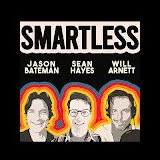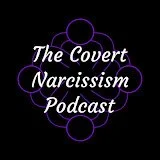
Big belly laughter, Information and
So Much More
Whether it’s light-hearted conversations or learning about something new, give these Podcasts a listen!
I want to LAUGH
Armchair Expert
By Dax Shepard
Good Hang
By Amy Poehler
Handsome
By Fortune Feimster, Mae Martin, Tig Notaro
Smartless
By Jason Bateman, Sean Hayes, Will Arnett
Where Everybody Knows Your Name
By Ted Danson & Woody Harrelson
I want to LEARN
The Mel Robbins Podcast
By Mel Robbins
The Covert Narcissism Podcast
By Renee Swanson
The Shift Church
Albany, Oregon
Spotlight Episodes
Armchair Expert: Brene Brown Returns
Brené Brown (Atlas of the Heart) is a research professor and author. Brené joins the Armchair Expert to discuss how important language is to express our emotions, how people often incorrectly use the terms envy and jealousy, and the difference between the halo effect and the bandwagon effect. Brené and Dax talk about what the physical symptoms of shame are, how some people are more hardwired for struggle, and if it's possible to have compassion for people who inflict trauma on others. Brené explains how she often races other people when swimming laps, how Schadenfreude can be a predictor of a fragile ego, and why she doesn't want to be seen as a motivational speaker.
Mel Robbins: The Truth About Anxiety And How To Heal It
Everything you think about anxiety is wrong. Yes, we’re starting there. And yes, we’re doing deep. I know that this episode will change your life. It has done the same for mine. It’s not a secret that I’ve struggled with anxiety for pretty much my whole life. I swear I came out of the womb in a full-blown panic attack, and I was just warming up for a life of worry on a very elite, professional level. I have been sharing my anxiety journey, and the tools that have helped me, for the past five years. And in this episode, things go deeper than they ever have before. No exaggeration when I say my takeaway from this interview today is so revolutionary, it’s forever changed the way I think about my anxiety and my relationship to it. Which is why it’s my honor to introduce you to Dr. Russell Kennedy, MD.
Mel Robbins: Two Simple Ways To Find Clarity And Move On
How do you know if the thing you’re holding on to is something you should keep fighting for or if it’s time to let go? Phenomenal questions. I’ve got the answer. The truth is, most of us never let go. You spend a lot of time adding things into your life - new projects, new relationships, new stuff - but when was the last time you subtracted something?
The Covert Narcissism Podcast: Are Compassion and Empathy the Same?
Understanding the difference between compassion and empathy is important for anyone who is dealing with a non-empathetic person, such as a covert narcissist. Compassion and empathy are both in response to the emotions and needs of another person. Both involve some level of awareness of the other person’s needs. By definition, compassion is the feeling that arises when you are confronted with another’s suffering and are motivated to relieve that suffering. Covert narcissists can have this and often do compassionate acts, especially when motivated by outside factors. When they do however, it seems to be empty and have no substance behind it. Empathy, by definition, is the ability to sense other people’s emotions, coupled with the ability to imagine what someone else might be thinking or feeling. This is lacking with covert narcissistic people and leaves a trail of hurt, neglect and abandonment.
The Covert Narcissism Podcast: Our Kids Suffer When We Suffer
Kids desire and NEED to feel safe and cared for. When their parent who is their safety and caregiver suffers, they suffer as well. If you think that you are hiding this abuse from your kids, you are wrong. Our kids see it, and they feel it. Children put their own defense mechanisms in place. These include living in denial, shutting it all out, disassociating, distracting themselves, putting up harsh boundaries with anger and temper, and protecting you by taking on parental roles. These defense mechanisms are harmful to our kids. They lack of life experience causes them to not see it and to not know that this isn't normal or healthy. Listen to the full episode for ideas on how to help our kids.
Serving
Sermon presented by Neal McKinney








